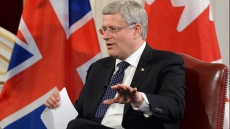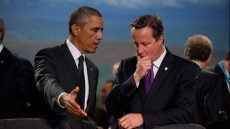OTTAWA - Canada's economy unexpectedly shed jobs in August due to heavy losses in the private sector, raising the eyebrows of economists who widely expected a modest gain in Statistics Canada's flagship monthly report.
The national statistical agency reported Friday that the economy lost 11,000 mostly part-time jobs in August, with the unemployment rate remaining unchanged from the previous month at 7.0 per cent. Economists had expected a net gain of about 10,000 jobs.
A whopping loss of 112,000 jobs in the private sector was only partly offset by more people turning to self-employment and the continued delivery of jobs in the public sector.
But some economists, uneasy after Statistics Canada badly botched its July job numbers, raised concerns about the latest figures.
The country's national number-cruncher was forced to issue a major correction to its employment survey last month after wrongly reporting that the economy gained a paltry 200 jobs in July. That number, Canadians found out a week later, was actually supposed to be 42,000. Statistics Canada blamed a computer error.
This time around, some economists were skeptical about the staggering job losses in the private sector and equally surprising gains in the number of self-employed people.
"Guess what? We again advise clients to be very careful with the Canadian jobs numbers," Scotiabank economists Derek Holt and Dov Zigler wrote in a note to clients.
They pointed out there has never been a bigger month-on-month rise in the number of self-employed people, or drop in private-sector jobs, since Statistics Canada started the labour force survey back in 1976. That those record-level monthly gains and losses just happened to almost cancel each other out in the August jobs' report seemed "very fishy" to the Scotiabank economists.
"What an utterly fascinating pair of coincidences," wrote Holt and Zigler.

"A data quality/sampling issue may be in play again here as I just can't believe such volatility in either number."
In response, Statistics Canada said it does not comment "on the opinions or comments made by individuals outside of the agency."
Finance Minister Joe Oliver replied with a terse "yes, I am" when asked Friday if he is still confident in the quality of Statistics Canada's data.
Still, last month's statistical snafu has only served to amplify the concerns held by some economists about what they perceive to be a great degree of volatility from one month's job numbers to the next. Some now prefer to look at averages over three, six and 12 months, rather than at the latest monthly job numbers.
The Canadian dollar was down slightly Friday in response to the weak job numbers.
"After a string of solid economic reports, Canadian employment delivered yet another shocker, with no computer error to blame this time," CIBC chief economist Avery Shenfeld said.
"All told, soft numbers that will at least take a bit of a shine off what has been an improving picture for Canada, particularly given softer than expected readings today out of the U.S."
Employment rose in Nova Scotia and New Brunswick, but fell in Newfoundland and Labrador and Alberta — which, to one economist at least, was a sign that Canada's economy struggled to churn out jobs.
"The fact that private sector payrolls are unchanged from a year ago, and now even Alberta appears to be cooling a tad,tells us all we need to know about the sluggish state of Canada's job market," said Doug Porter, chief economist with BMO Capital Markets.
"The offset is that productivity is now stepping into the void, and helping keep overall economic growth on track."

Canada's gross domestic product is still on track to grow more in 2014 than it has in the past two years, added Porter, who says "productivity is what circles that square."
That puts no added pressure on Bank of Canada governor Stephen Poloz to tinker with interest rates.
On Wednesday, the central bank held its key interest rate steady at one per cent, indicating it does not foresee enough of a change in Canada's economic fortunes to adjust the rate from the same level it has held for the last four years.





